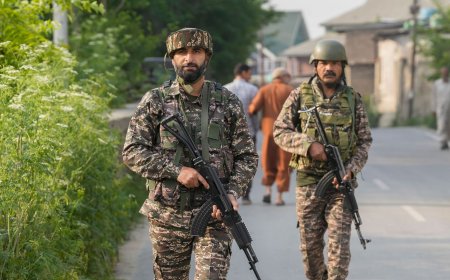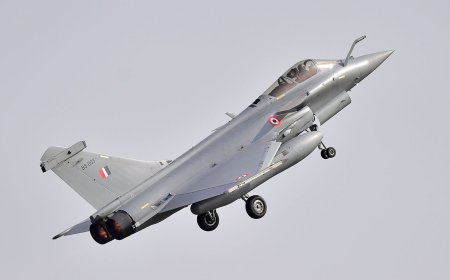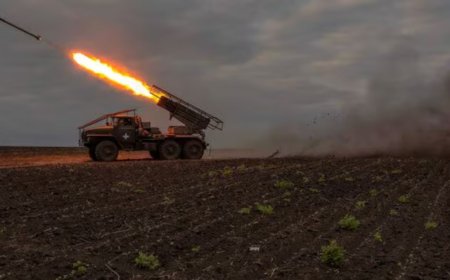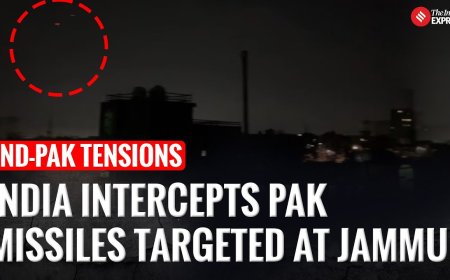India Reasserts Sovereignty Over Arunachal Pradesh, Calls Out China's Renaming Claims
India reminds China of the "undeniable reality" of Arunachal Pradesh being an integral part of India, rejecting Beijing's repeated attempts to rename Indian territories.
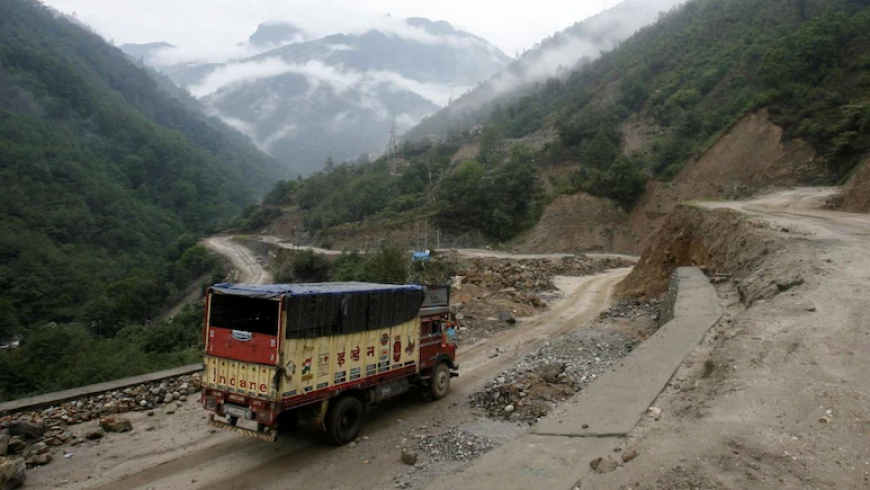
🇮🇳 India Reminds China Of The "Undeniable Reality" Of Arunachal Pradesh Amid Renaming Row
New Delhi | May 14, 2025 — In a firm and unambiguous message, India has once again reminded China of the “undeniable reality” — that Arunachal Pradesh is, and will always remain, an integral part of India. The Ministry of External Affairs (MEA) delivered this clear rebuttal after Beijing released yet another list of renamed locations within Arunachal Pradesh in Mandarin, asserting claims over the Indian territory it refers to as “Zangnan.”
The Indian government’s reaction was swift, sharp, and unequivocal. “Assigning invented names will not alter facts,” said MEA spokesperson Randhir Jaiswal during a weekly briefing, reinforcing India's consistent stand on the matter.
China's Provocative Move: A Fresh List of Renamed Locations
On May 12, 2025, China’s Ministry of Civil Affairs released its fifth list of standardized geographical names for places within Arunachal Pradesh. The list, consisting of 30 locations, included mountain passes, rivers, villages, and other landmarks in the Indian state. This was not the first time Beijing attempted such a renaming exercise; similar lists were issued in 2017, 2021, 2023, and 2024, each met with strong opposition from New Delhi.
China justifies these actions as “sovereign matters” claiming Arunachal is part of South Tibet, a stance India categorically rejects. The renaming is widely seen as a diplomatic maneuver to assert territorial claims ahead of key international engagements and domestic anniversaries related to Tibet and border affairs.
🇮🇳 India's Response: Unyielding and Grounded in Historical Truth
India’s Ministry of External Affairs did not mince words. MEA spokesperson Randhir Jaiswal declared:
“We have seen reports of China attempting to rename places in Arunachal Pradesh. This is not the first time they have made such an attempt, and we firmly reject such attempts. Arunachal Pradesh is an integral and inalienable part of India.”
He went on to describe the move as “preposterous” and “a futile political stunt.” India maintains that such efforts will have no bearing on ground realities or legal positions, as the people of Arunachal Pradesh have long exercised full democratic rights, including participation in national elections.
Ground Reality: Arunachal Pradesh Is India — Politically, Geographically, and Emotionally
Arunachal Pradesh, especially its Tawang region, has long been at the heart of the India-China territorial dispute. But India's position is backed not just by maps, but by:
-
Robust infrastructure, including highways, airbases, and communication networks developed over decades.
-
A democratically elected state government.
-
Presence of Indian Armed Forces, who maintain constant vigil along the Line of Actual Control (LAC).
-
Regular visits by top Indian leaders including the President, Prime Minister, and Defense Minister, which reinforce its administrative integration with the Union of India.
In fact, in the recently concluded Lok Sabha elections of 2024, Arunachal Pradesh recorded a high voter turnout, another testimony to its democratic vibrancy and allegiance to the Indian republic.
Global Reactions: Silence or Subtle Support
While China’s renaming gambit has not drawn overt international condemnation, key global players are increasingly aligning with India’s territorial integrity narrative.
-
The United States, through its Indo-Pacific strategy, has recognized Arunachal as part of India and has even objected to Chinese incursions.
-
The European Union remains cautious but echoes respect for sovereign borders and peaceful resolution of disputes.
-
Japan, Australia, and Southeast Asian democracies have been supporting India’s role in maintaining regional stability.
Expert Take: What's Behind China's Renaming Agenda?
Dr. Brahma Chellaney, Geostrategist:
“This is psychological warfare. China uses cartographic aggression and symbolic renaming to build a narrative — not just for the world, but for its own citizens. But such attempts fail when ground realities and international law are not on their side.”
Lt. Gen. Rakesh Sharma (Retd), Former GOC, 14 Corps:
“The names on Chinese lists are not even in regular use, neither by locals nor in Indian records. It's laughable. But the strategic intent is serious — this is part of hybrid warfare to assert claim and confuse global observers.”
Ananth Krishnan, China Analyst:
“This also has a domestic angle. Beijing uses these announcements to signal strength to its domestic audience, especially around sensitive anniversaries like the founding of the People's Republic or Tibetan revolts.”
The Strategic Stakes: Why Arunachal Matters So Much
Arunachal Pradesh isn’t just a state — it’s a strategic buffer, particularly the Tawang sector, which borders Bhutan and the Tibet Autonomous Region of China. Key reasons why it remains pivotal include:
-
Tawang Monastery: Second-largest Tibetan Buddhist monastery after Lhasa.
-
Access routes: China fears India could use the terrain to launch counter-operations in a conflict.
-
Ethnic & cultural ties: Indigenous tribes in Arunachal, like Monpas and Tawangpas, have unique Indian identities, resisting Sinicization.
Control of Arunachal would not only alter the Himalayan geopolitical landscape, but also dismantle India’s defensive posture along the Northeast corridor.
India’s Military and Diplomatic Preparedness
India has already ramped up border infrastructure, with projects like:
-
The Trans-Arunachal Highway
-
Multiple advanced landing grounds (ALGs) for quick troop deployment
-
Surveillance drones and air defense systems
Diplomatically, India continues to engage at various levels — military-to-military talks, BRICS, SCO, and UN platforms — to ensure the world sees through Beijing’s attempts to unilaterally change status quos.
Timeline: The Pattern of China’s Renaming Claims
| Year | Event |
|---|---|
| 2017 | First renaming list issued by China with six places |
| 2021 | 15 additional locations renamed |
| 2023 | 11 places included in third list |
| 2024 | 12 locations renamed amidst border infra push by India |
| 2025 | 30 names declared ahead of key CCP conference on Tibet |
The frequency of renaming seems to correlate with either internal Chinese events or global attention on Tibet — suggesting it's more about narrative-building than actual claims.
The Road Ahead: A Test of Diplomatic Resolve
Despite these provocations, India remains committed to peaceful engagement, albeit without compromising on its sovereignty. Foreign Minister Dr. S. Jaishankar reiterated:
“We want peace, but peace cannot come at the cost of territorial integrity. Sovereignty is non-negotiable.”
Meanwhile, locals in Arunachal continue to live life unfazed, proudly celebrating their identity as Indians, dismissing China's antics as irrelevant to their lived experience.
Final Takeaways
| Key Point | Summary |
|---|---|
| China's Move | Released fifth list of renamed places in Arunachal |
| India’s Stand | Firm rejection, calling it a futile exercise |
| Strategic Implications | High due to proximity with LAC and Tibet |
| Global Response | Subtle support for India’s sovereignty |
| Diplomatic Outlook | India pushes for peace, but remains alert |
China’s attempts to rename Indian territory are nothing more than political posturing, a mix of cartographic aggression and symbolic assertion. But India’s steadfast resolve, constitutional clarity, and grassroots democratic backing from the people of Arunachal render such moves hollow.
As the MEA rightly said, “Invented names don’t change the undeniable reality.” Arunachal Pradesh is Indian — not just in legal terms, but in spirit, culture, and national consciousness. No map, name, or manufactured claim can alter that truth.
What's Your Reaction?
 Like
0
Like
0
 Dislike
0
Dislike
0
 Love
0
Love
0
 Funny
0
Funny
0
 Angry
0
Angry
0
 Sad
0
Sad
0
 Wow
0
Wow
0





























































